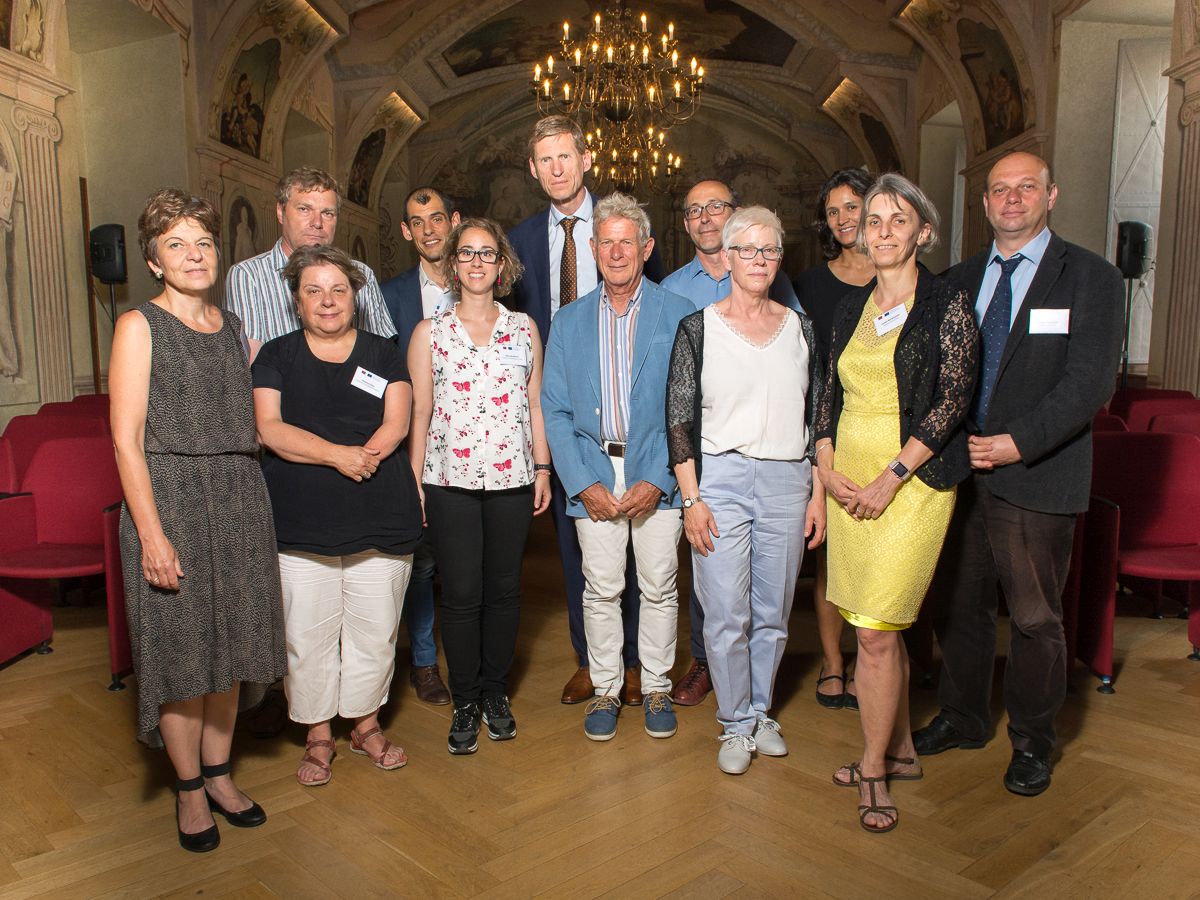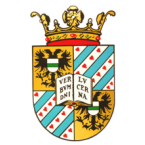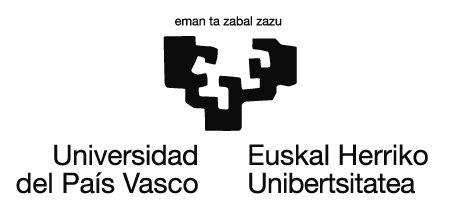
- Learn about this program
- Applicants/Alumni
- Partners
- Docs & Links
- About
search
The European Masters Program in Language and Communication Technologies (LCT) is an international distributed Master of Science/Arts course. It is offered by the following consortium of partners:
Coordination:
Prof. Dr. Josef van Genabith, project coordinator
Evgeniya Ustinova, project management

LCT coordinators and administrators at the 2019 Annual Meeting in Prague, Czech Republic.

|
Department of Language Science and Technology,
Saarland University in Saarbrücken, Germany (coordinator).
LCT at Saarland University Information for MSc thesis registration and submission at Saarland University. European partners At Saarland University (USAAR), the EM-LCT programme is run by the Department of Language Science and Technology (LST) and is integrated in the local MSc. programme of the same name: https://www.uni-saarland.de/en/department/lst/studies.html. The chairs of the department cover a wide range of linguistics and language technologies: computational linguistics, psycholinguistics, phonetics, digital signal processing, general linguistics, translation studies, machine translation. There is a strong link to the Department of Multilinguality and Language Technology at the German Research Center for Artificial Intelligence (DFKI) (http://www.dfki.de). The current research flagship is the Collaborative Research Centre (SFB) on "Information Density and Linguistic Encoding" (http://www.sfb1102.uni-saarland.de) that consists of several research projects with international significance. |

|
Center for Mind/Brain Sciences (CIMeC), University of Trento (UniTN), Italy. LCT at the University of Trento Guide to thesis submission - In this published page, examine the area Completion of the Degree. European partners The particular strength of the University of Trento, which distinguishes it from those offered by the other partners of the LCT, is the chance to study topics in Cognitive Neuroscience and Neuroimaging while acquiring a solid theoretical and computational background in foundational and cutting-edge LCT topics, like Computational Semantics and Language and Vision integration, with methods that span symbolic approaches, theory-driven language modeling and deep learning. Theoretical knowledge will be supplemented by the experience acquired in substantial practical projects carried out in research and industry labs. |

|
Department of Intelligent Computer Systems, Faculty of Information and Communication Technology,
University of Malta, Malta.
LCT at the University of Malta.
Guidelines for thesis submission.
European partners At the University of Malta, the EM-LCT program is co-hosted by two entities, namely the Department of Artificial Intelligence and the Institute of Linguistics and Language Technology. Thanks to this combination we can offer a wide range of study units and expertise to EM-LCT students that fully reflects the broad nature of the programme. Study units available range from advanced computer science through multi-disciplinary natural language processing (NLP) to experimental and theoretical linguistics. Regarding supervision, again the students have a choice among the wide range of profiles and expertise of our academic staff. Malta is a small island but our NLP community is very active, as reflected by the numerous EU-projects in which we participate. Classes are usually small, and although companies in the NLP field may not be as numerous as in other countries, the number is growing. Topics in which we specialise include: NLP for lesser-resourced language, natural language generation, language and vision, deep learning for NLP, distributional semantics, speech processing etc. |

|
University of Lorraine (formerly Nancy 2), France.
LCT at the University of Lorraine Guidelines to the thesis and internship are published here. European partners At the University of Lorraine, the LCT program is part of the master's degree in natural language processing (NLP) at the IDMC (Institute of digital sciences and cognition). The NLP master's program focuses on computer aided data processing in natural languages, such as text, speech and knowledge processing. The training follows a regular structure that puts emphasis on projects throughout the year. It shares courses with two other masters' programs: the master's in Cognitive Sciences for methods and tools in artificial intelligence and computer science, and the master's on Language Sciences for linguistic aspects. Another Erasmus Mundus program in Lexicology also integrates courses from the NLP master's program. Students are part of an ecosystem that is supported by two laboratories, Loria (https://www.loria.fr/en/) and Atilf (https://www.atilf.fr/), which promotes broad thematic open-mindedness while providing a solid thematic anchoring in computer science, linguistics, neural networks, resources, and applications for language data processing. |

|
Institute of Formal and Applied Linguistics, Faculty of Mathematics and Physics,
Charles University, Czech Republic. LCT at the Charles University Guidelines for writing a master's thesis. Inofficial notes for LCT students submitting the thesis at Charles University. European partners Charles University, founded in 1348, is a leading research university in the Czech Republic. The EM-LCT program is hosted by the Institute of Formal and Applied Linguistics, Faculty of Mathematics and Physics. We prepare our graduates for research in the broad area of natural language processing (NLP) as well as for the development of applications dealing with both written and spoken language. We can offer a wide range of courses ranging from advanced computer science courses focusing on mathematical and algorithmic foundations of NLP through courses offering state-of-the-art machine learning techniques to courses focusing on broad NLP tasks, such as, e.g., text and speech processing, information retrieval, machine translation, and dialogue systems. In all areas, we foster international cooperation and active and broad participation of LCT students in our research projects. Therefore, we welcome students with very good knowledge of computer science or mathematics interested esp. in the Natural Language Algorithms and Applications and Language Data Science LCT tracks. |

|
Faculty of Arts,
University of Groningen, The Netherlands LCT at the University of Groningen Information for thesis submission at RUG. European partners The EM-LCT program at the University of Groningen is part of the Research Master Linguistics. It has strong connections with the Master in Information Science, which has a strong Natural Language Processing track, and Artificial Intelligence. Most courses are taught in combination with one of these programs, which means that work forms can vary from consisting primarily of lectures for large audiences to team work dedicated to a specific topic. Within the LCT program, Groningen offers courses for the Natural Language Algorithms and Applications (NLA) and Digital Language Resources (DLR) tracks. The staff of EM-LCT specializes in research on computational semantics, social media, syntactic parsing, machine translation, multi-lingual approaches, and NLP for legal purposes. In recent years, several LCT alumni have continued as PhD at the Information Science group. Online Course CatalogFor international students |

|
Faculty of Informatics,
The University of the Basque Country, San Sebastian, Spain. LCT at The University of the Basque Country Information for thesis submission at EHU. European partners At the University of the Basque Country (UPV-EHU), the EM-LCT program is hosted by the IXA research group (http://ixa.eus) and HiTZ, the Basque Center for Language Technology (http://www.hitz.eus). The key cornerstones in our program are Applied Natural language processing and understanding (NLP/NLU), together with advanced data science, mainly applied to text but also to speech. Available study units range from advanced computer science to multi-disciplinary natural language processing, putting emphasis on experimentation but without leaving aside linguistic aspects. Our academic staff is notable for its commitment to research and for awakening research interest in our students. Researchers from 6 departments are involved in the teaching program leading to a wide range of expertise that translate into alternative multi-disciplinary possibilities for the master thesis. Classes are small, enabling close interaction. The Computer Science Faculty is located in San Sebastian, a green city by the sea at the feet of the Pyrenees that hosts several companies and technological institutes dealing with NLP. Our areas of expertise include: advanced deep neural machine translation, multi-modal natural language understanding, speech processing and speech generation, acquisition and annotation of language resources, NLP for lesser-resourced language like Basque. |
|
Until the end of course intake 2017, the following non-European universities participated in the LCT program as partner institutions: Shanghai Jiao Tong University, Computer Science and Engineering Department The University of Melbourne, Department of Computer Science and Software Engineering |
| German Research Center for Artificial Intelligence/Deutsches Forschungszentrum für Künstliche Intelligenz GmbH (DFKI) |
| Nuance Communications Deutschland |
| Fondazione Bruno Kessler |
| IBM Czech Republic/IBM Ceská republika spol. s.r.o. |
| Fundación Centro de Technologías de Interacción Visual y Comunicaciones -VICOMTECH |
| SONY Europe Limited |
| IBM Ireland Limited |
| Institut National de Recherche en Informatique et Automatique (INRIA) |
| National Technical University of Ukraine: Igor Sikorsky Kyiv Polytechnic Institute, Ukraine |
| Universidad Nacional de Córdoba, Argentina |
| Georgian Technical University, Georgia |
| Universidad Nacional Autónoma de México, Mexico |
| University of Haifa, Israel |
| Al Akhawayn University, Morocco |
| University of Uyo, Nigeria |
| Makerere University, Uganda |
| VNU University of Engineering and Technology, Vietnam |